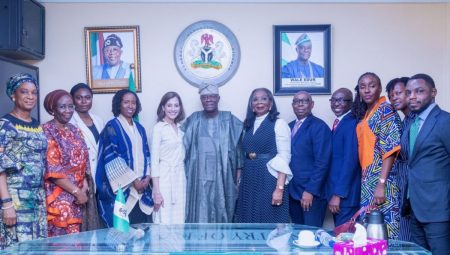 10 January 2017, Sweetcrude, Port Harcourt — In 2002 I was one among four motivational communicators that were mandated to speak sense to some ungrateful community activists over their unreasonable expectations of our principal, not the SPDC. Members of the community had picketed the operational base of the IOC demanding the extension of the electricity facilities deployed in the facility to their community. I remember painting to the few young men we took out of the group, the picture of Mother Theresa held hostage by one community for not giving them the same amount of olives and bread she had dispensed in a neighbouring community. That was the level of my disgust for community activists until I had the privilege of discussing the full boundaries of Nigeria’s cash call obligations in the Joint Venture Agreement between Nigeria and her partners and the logic of the inclusion of the ‘Community Development’ bill into the cash call bouquet.
10 January 2017, Sweetcrude, Port Harcourt — In 2002 I was one among four motivational communicators that were mandated to speak sense to some ungrateful community activists over their unreasonable expectations of our principal, not the SPDC. Members of the community had picketed the operational base of the IOC demanding the extension of the electricity facilities deployed in the facility to their community. I remember painting to the few young men we took out of the group, the picture of Mother Theresa held hostage by one community for not giving them the same amount of olives and bread she had dispensed in a neighbouring community. That was the level of my disgust for community activists until I had the privilege of discussing the full boundaries of Nigeria’s cash call obligations in the Joint Venture Agreement between Nigeria and her partners and the logic of the inclusion of the ‘Community Development’ bill into the cash call bouquet.
The essence therefore for the institutionalisation of Community Development as an operational factor and not as gestures of charity is not unconnected with the vociferous agitation by host communities that they ought to benefit for the loss and inconvenience they suffer not only for the environmental and economic hazards accruable to the operations but their denial of the control of their resources, whereby the SPDC and the other IOCs, needful of convivial operational platforms, palliate their hosts with meaningful and impactful projects such as road construction, community halls, scholarships, potable water and in rare cases, electricity supply which serve the dual objectives of making the operational environment safe and friendly as well as performing the obligations of government to those communities. In 2008, Shell introduced the Global Memorandum of Understanding, a very ambitious project by which Shell hoped to make community development structural, participatory and sustainable. The GMoU classified beneficiary families in accordance with geographical contiguity and ethnic affinity into Community Trusts and in turn grouped the Community Trusts into Cluster Development Boards. The governments of the states of the beneficiaries were mandatory participants to the projects as government operatives mostly from the Ministries of Local Government, Communities and Chieftaincy Affairs were drafted into the Cluster Development Boards which had supervisory custody and approval authority of the monies made available by the SPDC for the Clusters on behalf of the Trusts.
The GMoU, was in actual terms, run by the communities as they determined the projects to be executed, subject to the amounts made available by the SPDC for each Community Trust for the fiscal year. The communities were elated especially as they were authorised to nominate contractors to execute the projects they had chosen for the year. This was the system by which the Shell IA Foundation, the cluster for the communities that granted leases to the SPDC for its Industrial Complex at Rumuobiakani, Port Harcourt and the Shell RA Cluster Development Board, the supervisory cluster for Rumuibekwe, Mgbuesilaru and Rumuorianwo Community Trusts, all in Rivers State, Nigeria, executed several Community Development projects courtesy of the SPDC. Project proposals were submitted to the Clusters by the Trusts; the Clusters, made up by the representatives of all the Trusts, representatives of Government and expert Non Governmental Organisations, evaluated the Proposals, pruned the figures to the realities of the budget provided for the Trust and approved same.
It was a laudable concept that ensured transparent operations in community development and for which the affected communities began to enjoy increased commercial activities and visible prosperity. The initial tenure of the Cluster Boards and Trusts as provided by the GMoU document is five years with the implication that by 2013 all the Cluster Boards and Community Trusts sworn into office in 2008 had come to the end of their tenure. As this was envisaged by the GMoU document, the reconstitution of the Boards and Trust should have been a simple matter of swearing in the fresh set of officials elected or nominated by the Communities but the practice of the programme witnessed some occurrences that had not been anticipated by the GMoU. For instance, the elected community representatives of the Shell Industrial Area Cluster Development Board applied to the Corporate Affairs Corporation allegedly with the congruence of their constituents to become a Foundation, attaching in the registration documents, as required by law, a constitutional document which in the case of this application gave the trustees life tenures, contrary to the five year tenure provided by the GMoU. Enraged by this development, the Paramount Rulers of the communities in the Cluster, took the matter to court, alleging that their assent for the application for Foundation status had been contrived and demanding among other Reliefs, the nullification of the Foundation and the reversal to Cluster Board status as provided by the GMoU.
This dispute and others within Mgbuesilaru Community Trust where leadership of the Trust is the subject of a court dispute and in Rumuorianwo Community Trust where a family dragged the SPDC to court asking for their own (Rumuijiminiewhu) Community Trust, have frustrated the Re-Inauguration of these Institutions created by the GMoU to midwife a steady stream of community development projects for the beneficiary communities. The court disputes and the consequential non-activity situation prevailing since 2013 till date, bring into sharp focus the need for the SPDC and its stakeholders to conduct a performance review of the first five years’ operations of the GMoU Project with a view to carrying out changes that would ensure the continuity of this laudable investment stream in the future and fortunes of SPDC’s host communities. The need for some visible and positive action in this direction cannot be over-emphasised in the present situation where some mischievous community activists have started to construct non-existent conspiracy theories around the lull in community development activities, accusing the SPDC of promoting the crises to retain and redeploy monies accruable to four calendar years of the GMoU.



